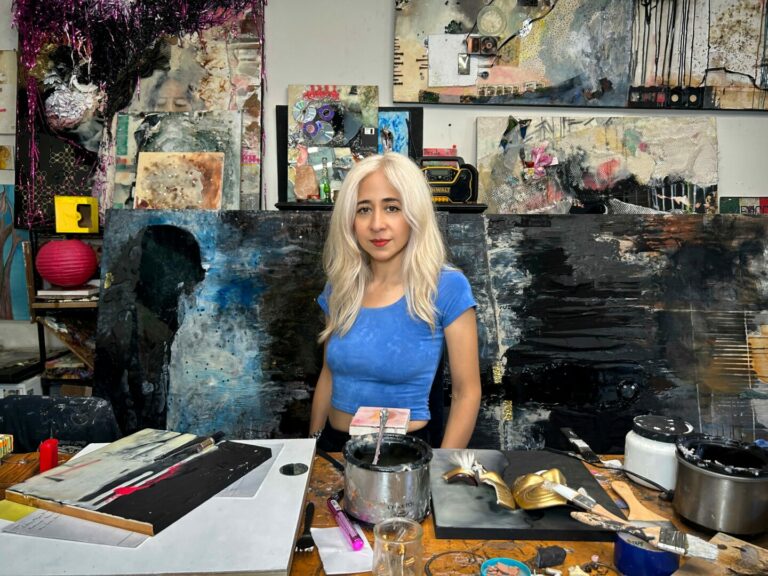We’ve got some of the most incredible artists, creatives and entrepreneurs in our community and we are constantly shocked by how prevalent imposter syndrome is. So many incredibly talented folks are haunted by self-doubt by a society that often tells you not to think too highly of yourself, but in order to have the strength to take on big challenges and make meaningful change in the world you’ve got to believe in yourself and so we wanted to create a space for conversations around overcoming imposter syndrome.
Kaylei Ibarra Blackmoon

This question is a hard one to answer. I don’t think imposter syndrome can ever be beaten. If it can, I’d love to meet the person that was able to mentally get them there. One thing I realized, is that everyone is experiencing some form of imposter syndrome in their own way. It truly wasn’t until I started taking chances on myself, speaking to others who are doing the same in their entrepreneur journeys that I realized we are all living this. Read more>>
Taneia Surles

I want to start off by saying that getting over imposter syndrome was not a one-time situation. In fact, it’s not uncommon for me to have to overcome the feeling of not being a good enough writer at least once a month. After the first few instances, I had to change my mindset to easily remove thoughts of self-doubt from my mind. So, when imposter syndrome creeps up, I get off social media. Then, I immediately go to my portfolio to look at my previous work that I’m proud of or read testimonials from current and past clients. If that doesn’t work, I’ll shut off my laptop and read, color, or cook to clear my mind. It works every time! Read more>>
Bethany Hawkins
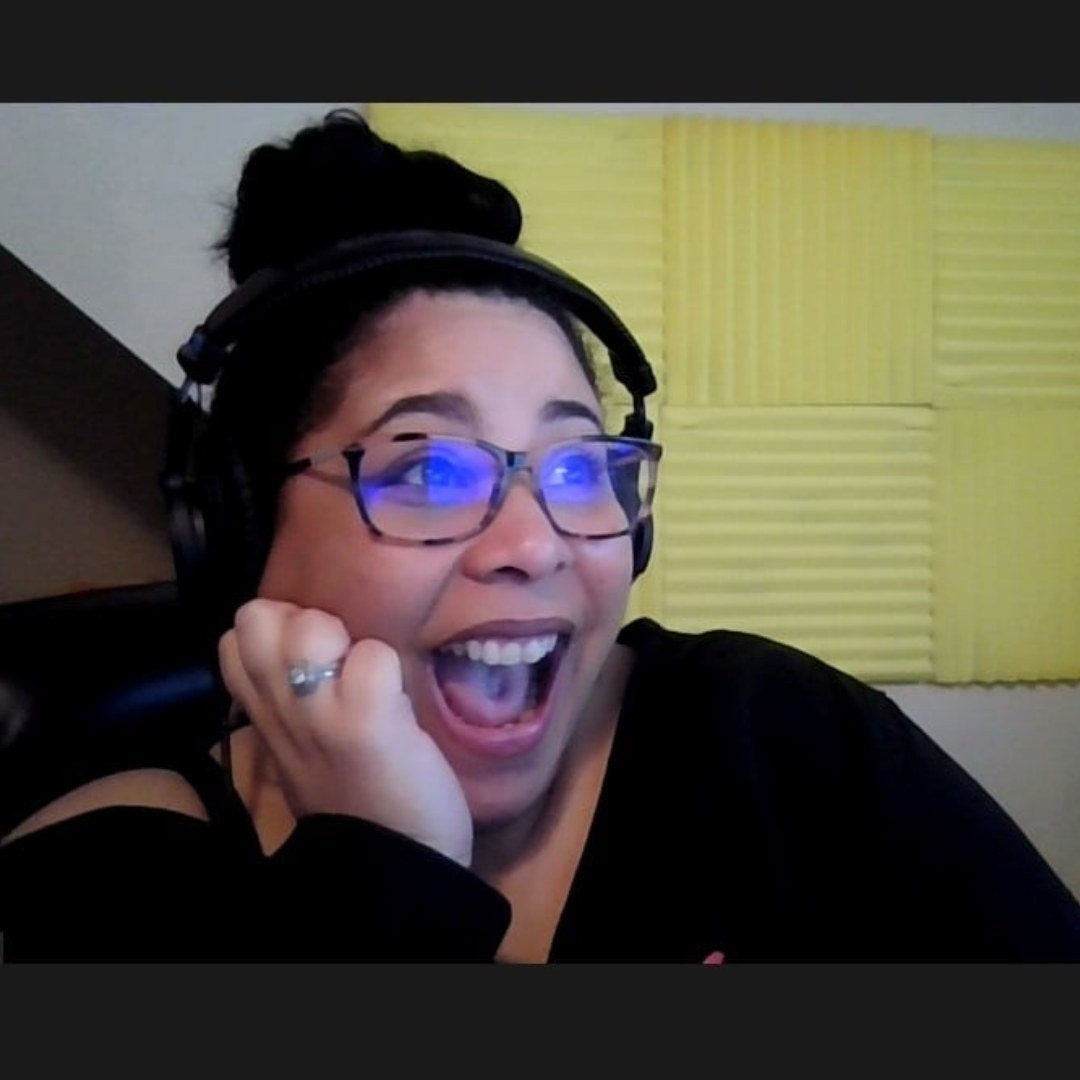
I don’t think I have or will ever overcome imposter syndrome. As someone who has been diagnosed with obsessive compulsive order and depression, my brain is wired for anxiousness. When I decided to create this business, I had to make a decision. What did I want to be anxious about: working at a job that didn’t fulfill me or endure the trials and tribulations of creating my own business. I chose the latter. Read more>>
Katherine Cundiff

This is something I have battled for a very long time while becoming comfortable with myself as an artist. I never used to value my art, thinking I wasn’t worthy, or that everyone else’s art was much more valid than mine. Over the last few years, I’ve really started to gain my confidence because I’m just as capable as anyone else to create art the invokes feeling and emotion. Read more>>
Viviana Cardenas
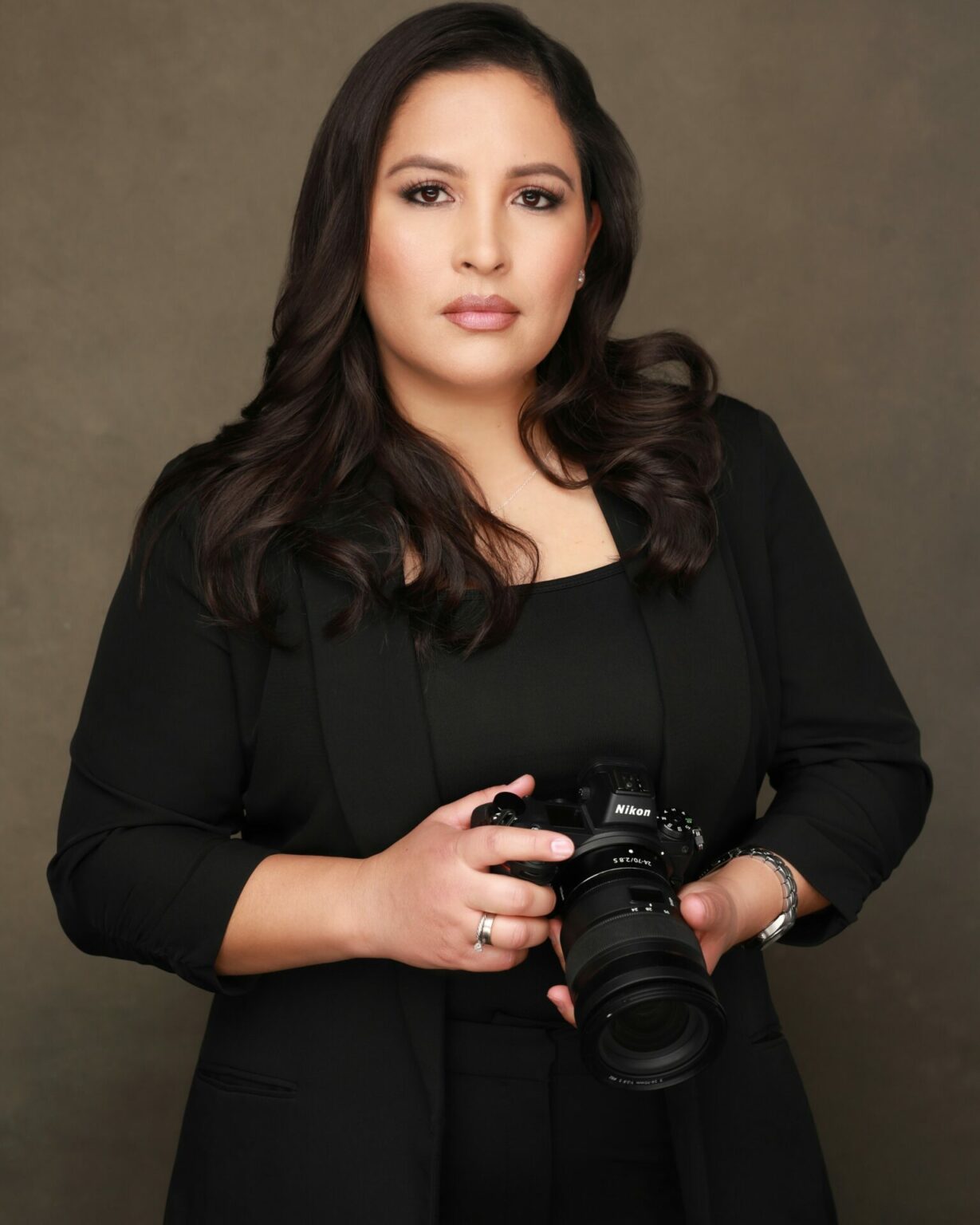
Ha! this is something that probably will never go away BUT the way I have overcome Imposter syndrome has been by staying consistent, persevering, setting attainable goals and being kind to myself. it has not been easy it is not impossible to overcome. Imposter syndrome gets the best of most of us and some people just cant get pass it. One thing I heard someone say once was, if the goal is super scary and paralyzing, then you need to run to it even faster and I have done some of that. Read more>>
Vanessa Medina

This is a tough one and it still creeps up from time to time, but I just focus on the now. I try not to let my own self doubt tarnish any of my achievements or goals that I’ve accomplished. It’s easy to feel unsuccessful and as though you are a phony, especially in a creative industry where you are constantly comparing your self and artistic abilities. Read more>>
Melissa Nansen

Oh man, I totally have not overcome imposter syndrome! But you know what? That’s okay! Imposter syndrome is a common feeling among many creative professionals, and it doesn’t mean we’re not good at what we do. In fact, I think it often means the opposite – that we care deeply about our craft and want to do our best. The truth is, I believe that no matter how successful you become, there will always be moments when you feel like you’re not good enough. Read more>>
Annie O’Malley

I spent a very long time trying to learn everything I possibly could about a subject, thinking that there would at some point be an “aha moment” where I would suddenly feel equipped to call myself an expert. Spoiler alert, there was no “aha moment”. I eventually realized that even people that I consider to be experts don’t know everything, and I started getting comfortable with saying, “I don’t know, but I’ll find out”. If you spend enough time in a field, you start to realize that everyone is just figuring it out as they go in some regard. Find yourself a few people who are willing to share what they know, and make sure you do the same, and you will all be better for it. Read more>>
Brandon Bramley

I struggled with imposter syndrome for a while when I first started The Salary Negotiator. I lacked a reference point to gauge my skills because I was building a coaching program for services that didn’t exist yet. However, as I continued to receive referrals from past clients and collaborate with more career professionals to successfully negotiate their compensation, my confidence grew. Clients were often surprised by the achievements we made in their salary negotiations and expressed their thanks. Read more>>
Roscoe Robinson

1. Personal Reflection: Impostor syndrome hit me hard, making me question my abilities and achievements. The first step for me was acknowledging it and reflecting on when and how it surfaced in my life. 2. Faith as the Anchor: My Christian faith became my anchor. Scriptures like Philippians 4:13 became my mantra, reminding me that I can do all things through Christ who strengthens me. Prayer became a powerful tool in overcoming self-doubt. Read more>>
Cole Withers

Hard work. When I was younger, I suffered from imposter syndrome. No matter what the success, I never felt worthy. I was always an imposter. Today, I realize I am uniquely qualified and the work I put in to develop my craft continues a day at a time. The rewards are plentiful and continue to surprise me. Read more>>
Laura Baggett

For a long time I was minimizing what I did and thought that I “should” or my work “should” be A/B/C. But then I realized that what I do is a gift, and that i have my own creativity that helps others with their visions. Once i was able to reframe what I was bringing to the table I was able to show up more authentically. Like Oh this project looks fun, How can I help? How can my talents support this project. Then it took the pressure off me to make my self tape or audition “Perfect” I could just show up and have fun. When I started having fun with the work, instead of trying to make them perfect, the jobs flow. Read more>>
Marra Avery-Drayton

As a small business owner, it’s easy to fall into the comparison trap. I’ve found that the toughest critic is often myself. What’s helped me navigate this is focusing on what makes me unique—whether that’s a special talent, my passions, or experiences that shaped who I am. It’s crucial to building connections and relatability in a market where many of us offer similar products or services. Read more>>
Sherrill Mosee

While the term “imposter syndrome” has been around for a while, I only became acquainted with it about three years ago. When someone explained what it was, I must admit that I don’t experience imposter syndrome at all. None of the terms associated with imposter syndrome—fraud, inadequacy, undeserving, lucking, and so on—describe how I feel about myself or the work I do. I’ve worked really hard over the years to get where I am today. Read more>>
Vanesa Reeves

For the longest time I didn’t know what imposter syndrome was, let alone that I was struggling with it! When I researched the different types of imposter syndrome, I was able to find affirmations to counter the negative thoughts. Slowly but surely I felt the negative mindset slipping away and being replaced by feelings of self assurance. Read more>>
Skip Benefiet
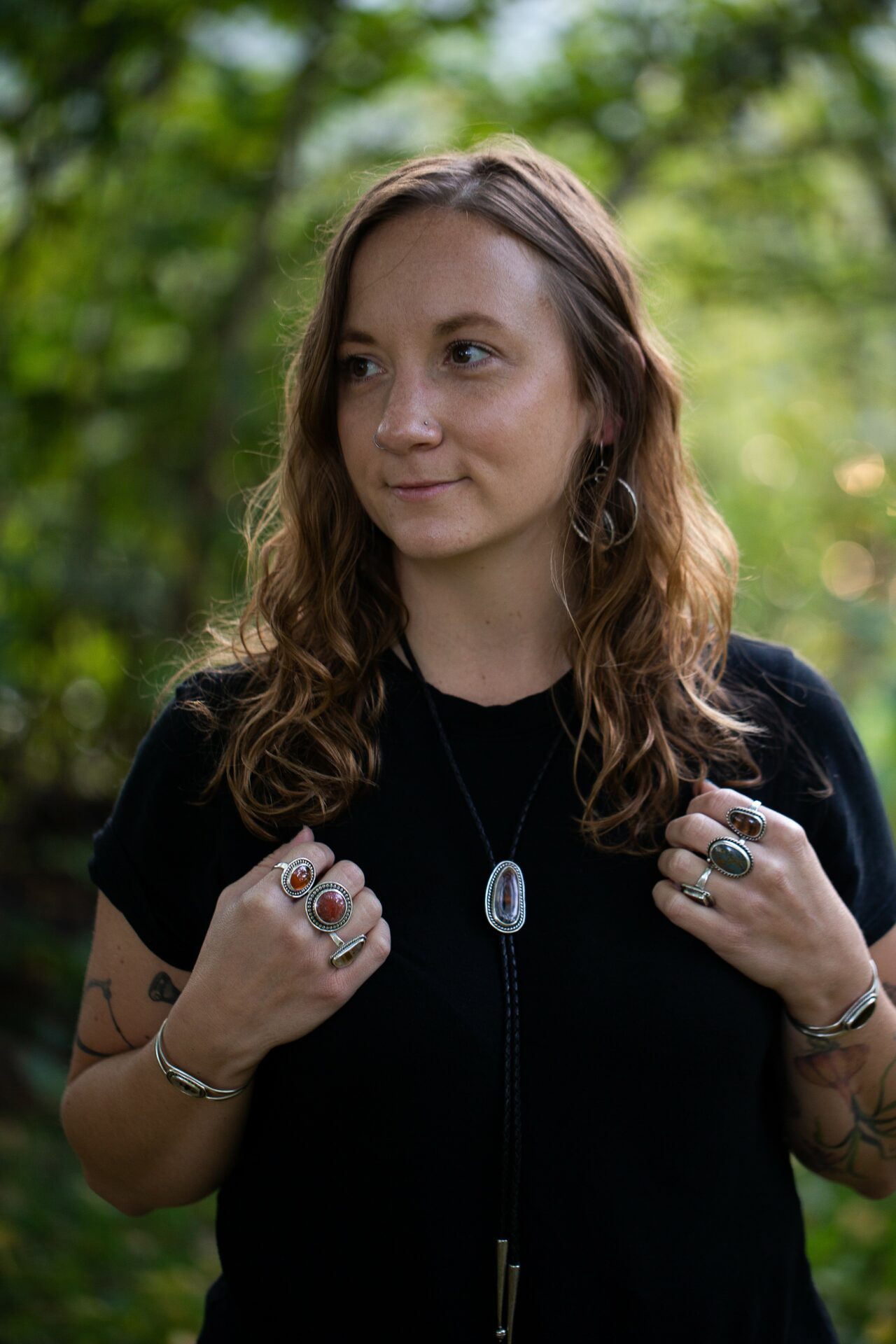
I think that this is an ongoing challenge for anyone who is a creator or their own boss. For me it isn’t about overcoming it and never having these feelings again, it’s more so about addressing these feelings of self-doubt as they come up and pushing past them. It’s hard not to compare yourself to others, to think that you are behind your peers. Up until pretty recently I was definitely doing just that, trying trending audio on my reels just to get some visibility, trying to post things “on trend”. Read more>>
Verenice Hernandez-Herrera
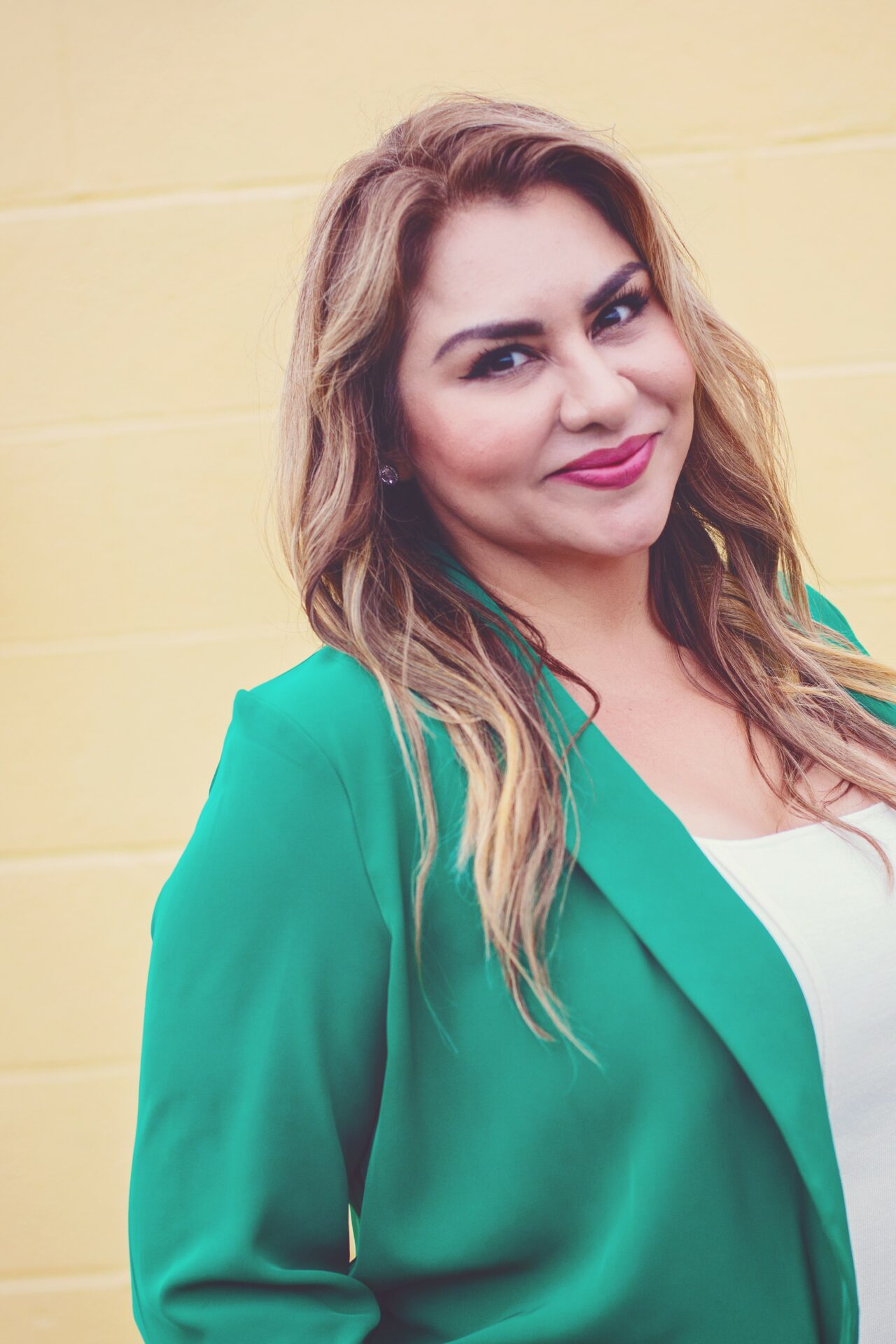
In my journey as the founder and CEO of Wishwell, I’ve had to navigate through the murky waters of imposter syndrome. It’s a feeling many of us are familiar with, but my story has a twist. With over 26 years in education and 20 years as a school counselor under my belt, you’d think I’d be brimming with confidence. But the truth was, I often doubted my own worth and expertise. This self-doubt, I realized, stemmed from a lack of confidence, a trait that didn’t align with who I am at my core. I’ve always been an advocate for empowerment, both for myself and others, and it was time I walked the talk. Read more>>
ShaQuita Pope-.Maxwell
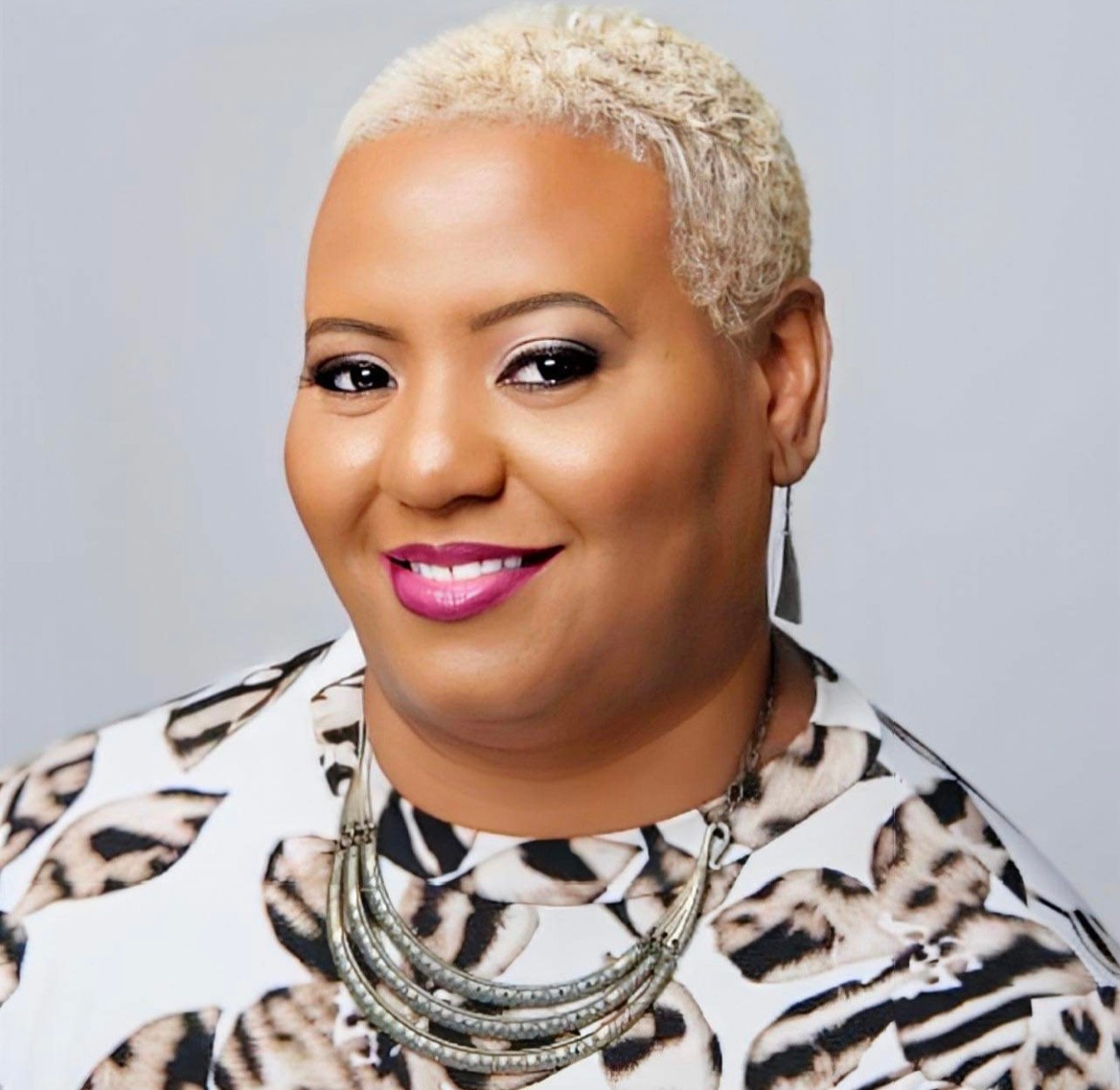
First and foremost, imposter syndrome is a personal choice. I’ve always stood flat foot and bold knowing whose I was, and who I was called to be. I never ran from my calling, I just walk in it. Read more>>
TIFFANY WEST

Overcoming imposter syndrome involves changing your mindset about your own abilities. Dr. Valerie Young divided imposter syndrome into five categories: The Perfectionist, The Superwoman/Man, The Expert, The Soloist and The Natural Genius. Growing up, I felt I had to live up to the genius of my eldest sister and the social butterfly of our other sister. This gave me an insane desire to be the natural genius. Over time, I learned that all three of us can have our individual strengths and make our unit better together. Read more>>
Jesus Trujillo

You know, there’s always this constant struggle trying to overcome imposter syndrome when it kicks in. It really does psych you out when you think you’re doing your best and then somehow that little ear worm likes to whisper sweet nothings about how you’re undeserving of the accomplishments and progress you’ve made. Truthfully, I think imposter syndrome will always be there with you. It’s just human nature at this point. That’s okay though, the best thing I can do to try and overcome this is just continuing to stay motivated and keep moving forward with whatever goals or dreams I got set for myself. Read more>>
Sophia Claire

I wholly endorse a ‘fake it till you make it’ mentality. I’m not sure imposter syndrome ever goes away completely, and to be honest a certain amount of discomfort is a good thing. Discomfort keeps you on your toes; it combats complacency. When you feel like you have to prove yourself, you’re more likely to be innovative, try new things, and maintain a sense of humility that is incredibly important for success. Appreciate the lessons you learn along the way, own up to your mistakes, and, perhaps most importantly, realize that peoples’ opinions are not a reflection of your worth. Read more>>
Sam Megraw
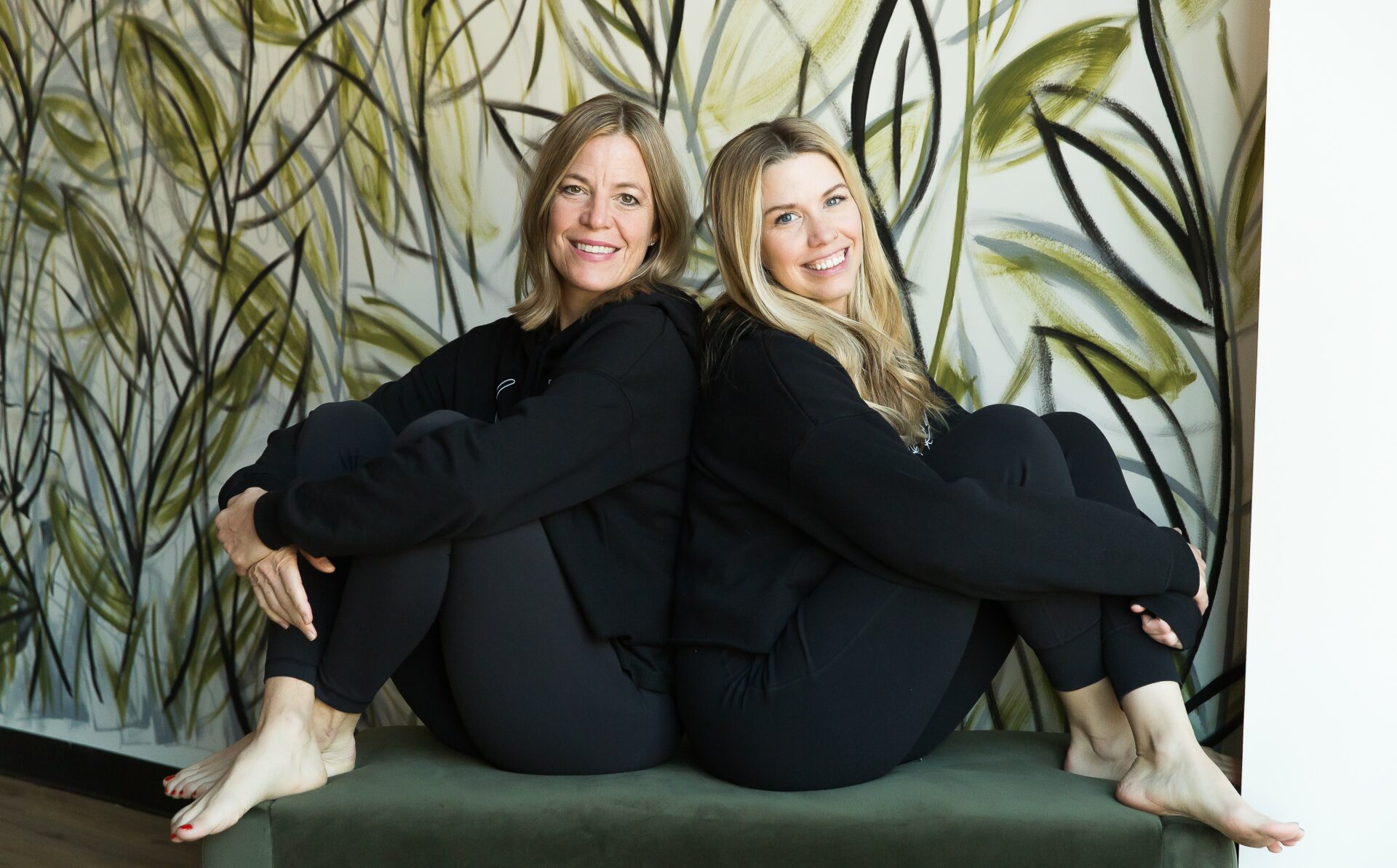
Opening a new business gave both my partner, Emily Devers, and myself major imposter syndrome! We talked a lot about the ways we could fail and how this monumental task of building a brick and mortar yoga studio could lead to us falling out of love with the yoga industry. We were up against the sell of the building, the high increases in inflation, and our biggest obstacles: our inner saboteur. Read more>>
Angel Krause

I think the short answer is, I don’t. I believe in normalizing these things in anyone’s journey. We put a lot of pressure on ourselves as humans sometimes and rather than being hard on ourselves for feeling like we are an imposter, I think we should embrace it as part of the journey. There was a time where we wouldn’t allow ourselves the chance to have a reason to call ourselves imposters. So the fact that we have something out in the world proves we’ve already overcome a fear we had to get out to begin with. Read more>>
Maryn Masumiya
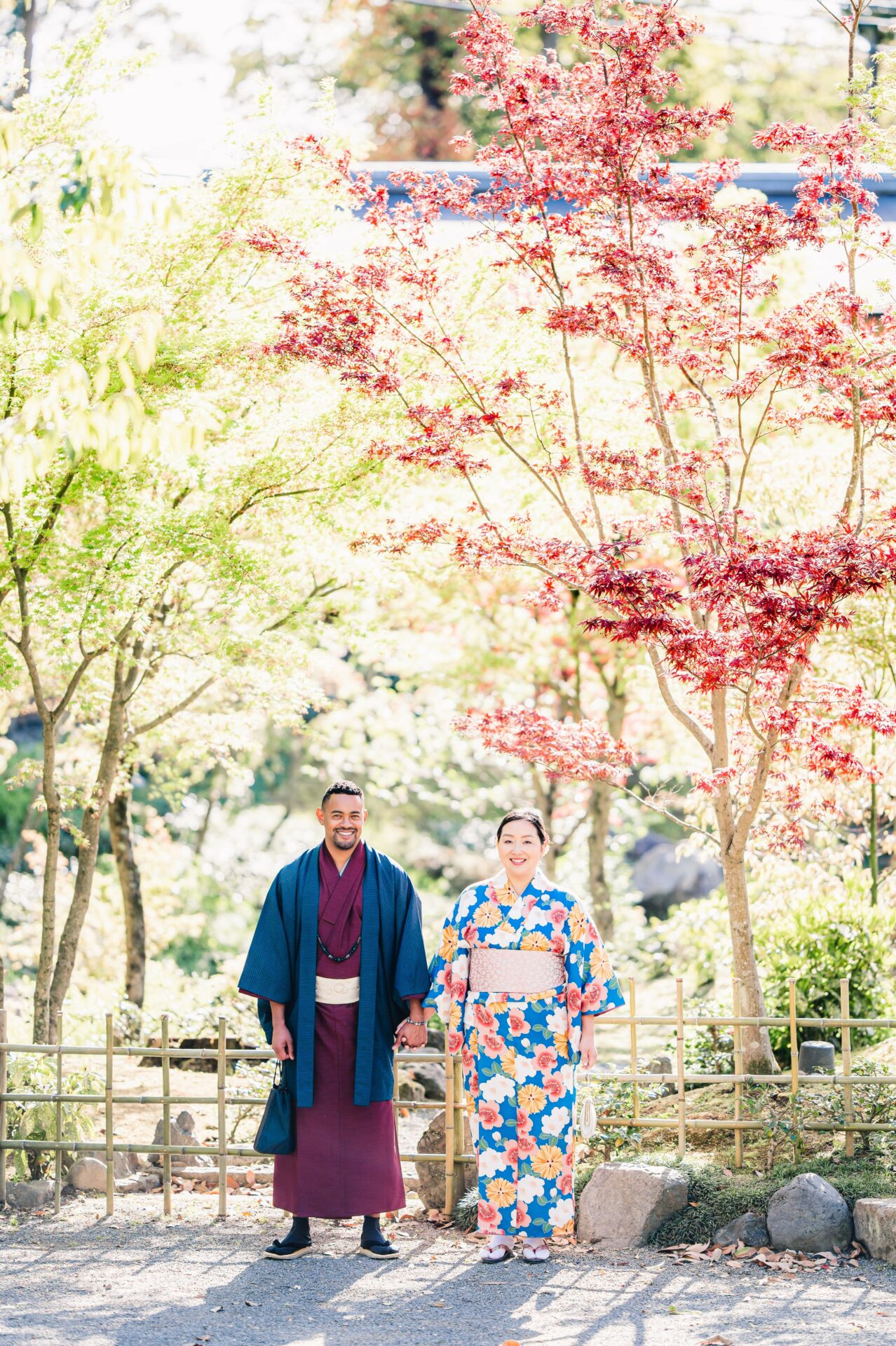
One of the best things I did to overcome impostor syndrome was to get in touch with my own feelings of worthiness. When I was younger, I sought validation from others because I wasn’t confident in my own feelings yet. Over time, my pursuit of external validation led me to burn out and feelings of emptiness. I finally made an effort to connect with my own intuition and define what my values are. Read more>>
SaraBella Abdulkader

When I started SB. NEW YORK, my jewelry brand. I downplayed it so much. People would ask me about it, and I would feel ashamed. It wasn’t big yet. I have worked very hard on it. I overcame imposter syndrome when I began trusting my own abilities and myself. Being in environments that did not support and uplift me harmed my self-worth. However, I was able to prevail over the challenge. By giving myself the space to shine, I no longer feel guilty for being myself or representing my brand. I enjoy seeing friends and clients wearing my jewelry. Looking back now it reminded me that I’m talented, influential, and creative, and I am proud of that. Read more>>
Iza Gotto

In life, we go through many situations that make us doubt ourselves. Sometimes, we feel like we’re not good enough or that we don’t have it. There are also moments when we are very hard on ourselves and we can’t help from feeling anxious or believing we could have done better. I’ve always believed you can achieve excellence by being disciplined. I’ve always pushed myself to do more and more every day, as well as accepting and being proud of the results of my work. Read more>>
Rosa Colón Guerra

I don’t think you truly overcome imposter syndrome, but you can learn to manage it. I’ve always felt a little lacking in comparison to my artist peers – which is the first thing you shouldn’t do compare yourself – and for a while this feeling of inadequacy affected my work. I would feel deflated seeing other people’s art. It would make me overthink anything I was creating. This worsened once I started posting on social media. All of a sudden I was bombarded with amazing artist from across the globe and it made me feel like I was falling behind professionally. Read more>>
Kelsie Shriver

Imposter syndrome is definitely something that I still struggle with sometimes, but thankfully I have been able to work past it by using tools I’ve gained through therapy, and also utilizing my support system. My therapist, who I’ve seen biweekly for the last 2 years, has helped me to break down a lot of the cognitive distortions that feed things like imposter syndrome and other self esteem/self talk problems. I’ve learned, with his help as well as the help from my support system, to take a step back and look at things more objectively to help put them into perspective. Read more>>
Stephanee Santamaria

I feel like it’s something you can’t overcome, but you work on it, and I think the key is to give yourself the credit you deserve and recognize how hard we work and that if opportunities come to us it’s because we’re ready to take them. To be honest, we are our strongest critics, and sometimes it is difficult to learn to be a little sweeter and softer with ourselves, because we do deserve them and we know the effort and love we put into our things. Read more>>
Shengluo Zhang

I was the producer of the animated short film “Restless is the Night,” directed by the talented duo of Xiaoxue Meng and Yuehan Tan. This narrative animation explores the journeys of two women from different generations as they strive to seize control of their lives. The film’s great storytelling and artistic excellence led to its selection and prestigious New York Premiere at the Tribeca Film Festival in June 2023. What made this experience even more significant was the fact that our team, the youngest entrant in the Short Animation Program, stood out among industry veterans. Read more>>
Gina Agassini
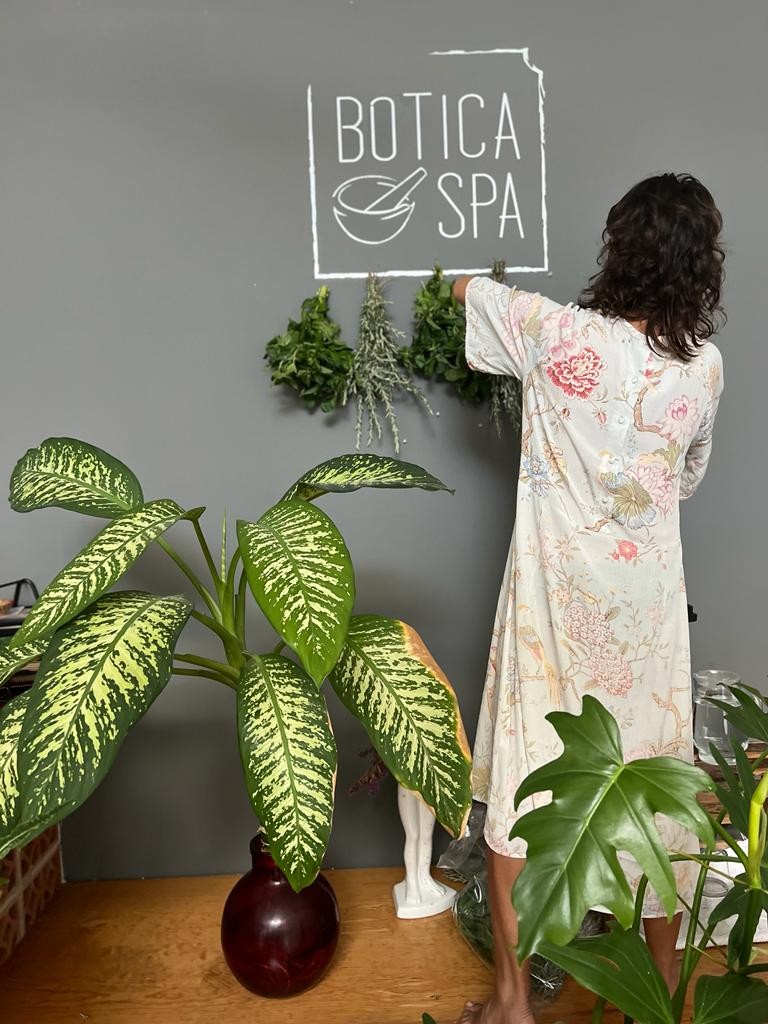
Hi, I’m delighted to be here sharing my experience. Overcoming impostor syndrome has been an ongoing journey. When we opened Botica Spa in 2016, it was a dream come true, but insecurity always lingered. My wife, Maria, has been my greatest support and believed in me even when I doubted my own abilities. To counter that insecurity, I adopted a series of habits that helped me focus on what I love to do: giving massages. Firstly, I learned not to listen to negative external voices and to focus on my work. Read more>>
Teharah J. Smith

It wasn’t easy to overcome imposter syndrome, and to be honest, I’m not sure if I can say that I’ve completely conquered it. However, I am very aware of its presence, and its power over me has significantly weakened. It’s a constant battle, you know? I have to constantly keep reminders in front of me that I am truly amazing and not only have I accomplished a lot, but I am also deserving of those accomplishments. Read more>>
Julianna Cuervo

Overcoming the impostor syndrome is an everyday job. I believe it is always there, but it is up to you to give it more energy than necessary. The main tool was to work on it through therapy, there I was acquiring different tools that make me deal with it better on a daily basis. On the one hand I understood that it is a consequence of being such a perfectionist person and that this was leading me to not enjoy the process, to do things, to create. Read more>>
Jessica Mathews

When I finally realized that you never overcome imposter syndrome, I was able to let go of the stress and anxiety imposter syndrome creates and get back to business. Imposter Syndrome will always creep in no matter if you are doing something you have done a million times in the dark with your eyes closed while walking backward and eating ramen to something you are doing for the first time. Read more>>
Caroline Guilbert
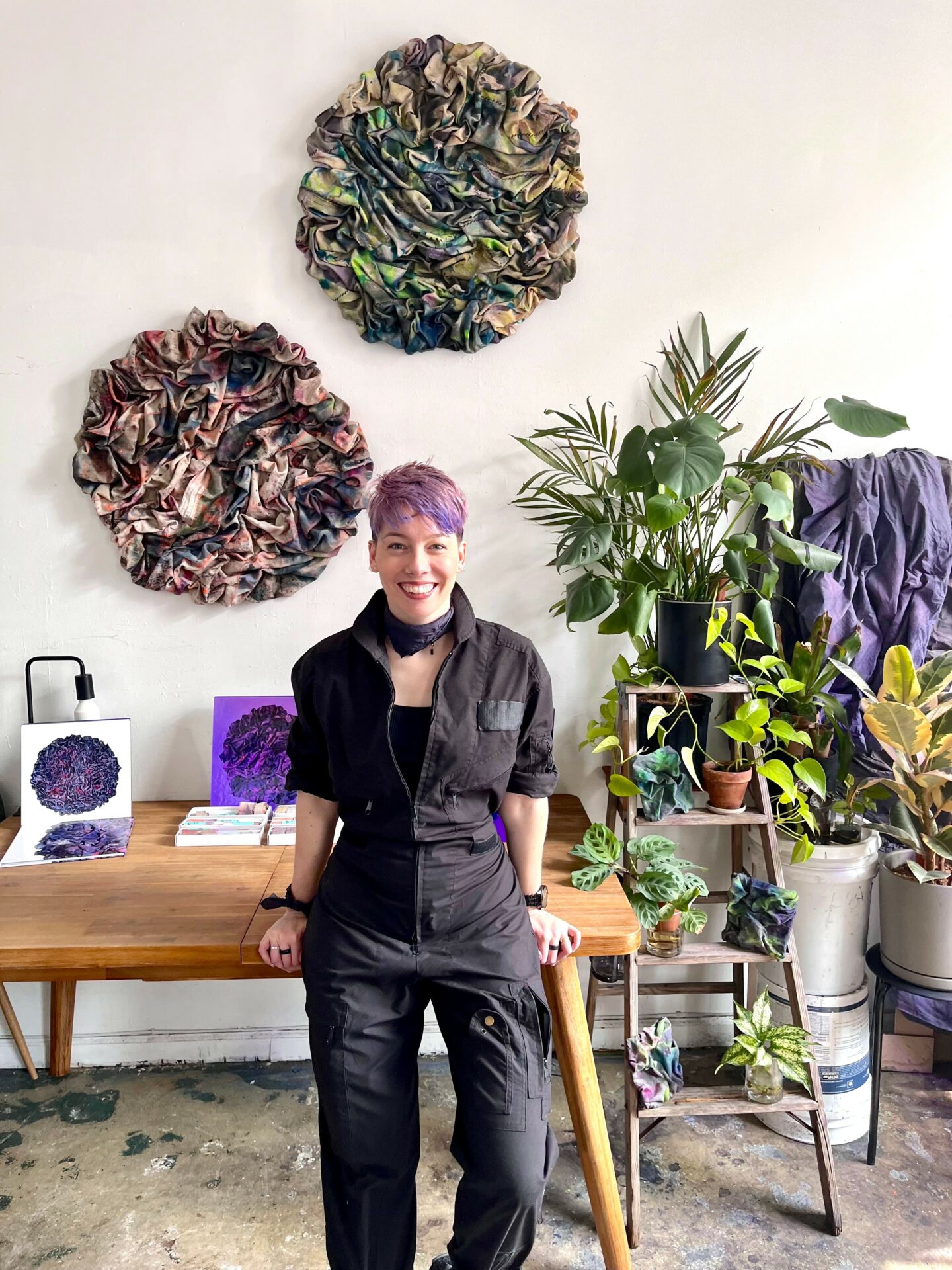
Initially, I didn’t realize that so many people deal with it every day. But in my opinion, this state comes from the idea that there is one way of achieving goals or tasks, one way of seeing the world. And that is far from the reality in the field of Art or creative expression. While there can be some (self) expectations as to how to “be successful” as an artist, it liberated me to understand that there are multiple routes and points of view to achieve a desired outcome and that as an artist, it was my duty to find and express my voice. Read more>>




